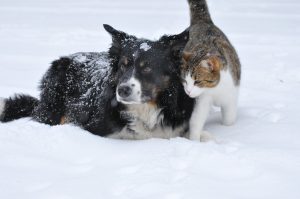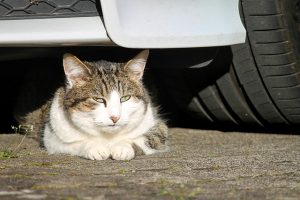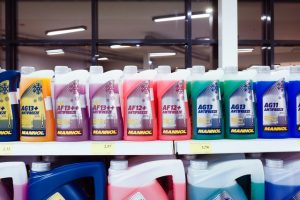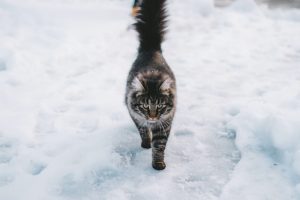How to Keep Our Pets Winter Safe
Winter is finally among us! As fun and exciting as it can be, winter can also be unpredictable.
Here are 3 tips on how to keep our pets winter safe.
1.Protect paws from salt
During the winter we use salt and other chemicals to melt the snow and ice on our driveways, roads and sidewalks, but these chemicals can irritate the pads of our pet’s  feet. Prolonged contact can even lead to chemical burns. Try to keep your dog off the salty sidewalk, lead them to walk over grass or snow. After returning from walks, be sure to wipe all paws with a damp towel before your pet has a chance to lick them and ingest the harmful chemicals. There are many products designed to protect dog paw pads during the winter month, from pet-safe de-icing products to protective waxes and doggy booties.
feet. Prolonged contact can even lead to chemical burns. Try to keep your dog off the salty sidewalk, lead them to walk over grass or snow. After returning from walks, be sure to wipe all paws with a damp towel before your pet has a chance to lick them and ingest the harmful chemicals. There are many products designed to protect dog paw pads during the winter month, from pet-safe de-icing products to protective waxes and doggy booties.
2. Look for cats before starting your car
As temperatures drop, outdoor cats will often seek out any warm space they can find. One particularly cozy favourite is the confines of a warm car engine. Unfortunately, cats that 


The best advice regarding your own cat is simply to keep him indoors during the winter. You will protect your pet not only from engine dangers but also from becoming lost, stolen, or injured.
3. Avoid antifreeze poisoning
Antifreeze, which we use especially in extreme temperatures, is a deadly poison with a sweet taste that may attract animals. Wipe up spills immediately and thoroughly, fix any leaks right away, and store (along with all other household chemicals) out of reach.
Don’t allow your pet to wander near driveways, garages or other places where they could 


A good substitute for this common product would be coolants and antifreeze made with propylene glycol which are less toxic to pets.
From prickly salt patches to kitties trying to keep warm in the innards of our cars, oh and 


We hope this short but very detailed list of the possible exposures will help you learn how to keep all your pets winter safe.
